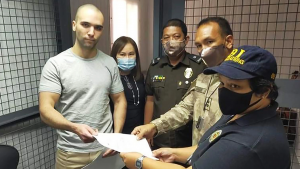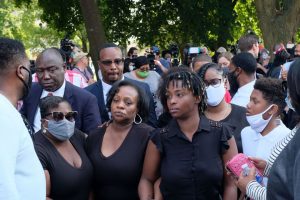PHOENIX — A Wednesday court ruling could make it easier for Arizonans to register to vote. That’s because U.S. District Judge Susan Bolton struck down key elements of two Arizona laws that expanded requirements for voters to prove their citizenship status.
One of them, House Bill 2492, disallowed Arizonans from registering to vote without proof of citizenship. Former Gov. Doug Ducey wrote H.B. 2492 into law in March 2022.
Assistant Attorney General Kristen Clarke of the Justice Department’s Civil Rights Division called those requirements “onerous.”
“House Bill 2492’s onerous documentary proof of citizenship requirement for certain federal elections constitutes a textbook violation of the National Voter Registration Act,” she said in a statement.
Passed in 1993, the NVRA required states to accept federal forms on their own from voters. However, after H.B. 2492, Arizonans couldn’t register to vote with federal forms alone. Election officials turned them away if the federal forms weren’t accompanied by proof of citizenship.
“For nearly three decades, the National Voter Registration Act has helped to move states in the right direction by eliminating unnecessary requirements that have historically made it harder for eligible voters to access the registration rolls,” Clarke said.
“Arizona has passed a law that turns the clock back on progress by imposing unlawful and unnecessary requirements that would block eligible voters from the registration rolls for certain federal elections.”
Clarke’s team at the Justice Department was far from the only group taking Arizona to court over its new laws on citizenship status.
Tribal leader said the law created an “illegal obstacle course” for Native voters
Critics like Mi Familia Vota, which promotes Latino voter registration efforts, also contended that H.B. 2492 flew in the face of the NVRA. Its case was consolidated with similar lawsuits from six other advocacy groups, including one from the Native American Rights Fund.
“Arizona cannot disenfranchise Native voters by creating an illegal obstacle course that eliminates many tribal citizens from participating in U.S. elections,” Tohono O’odham Chairmen Ned Norris Jr. said in a statement.
The Native American Rights Fund said H.B. 2492’s requirement for voters to show documents showing their current addresses prevented many Native Americans from voting.
“The requirements ignore the lack of standardized addressing on homes on tribal lands in Arizona, which will make it difficult if not impossible for many tribal members to register to vote,” its website said.
“Homes on tribal reservations in Arizona are significantly more likely to lack a standard physical address than homes in non-Native areas,” according to NARF’s site. “More than 40,000 homes on Native American reservations across Arizona do not have physical addresses.”
What other Arizona law on citizenship status was taken to court?
H.B. 2492 wasn’t the only voting proof-of-requirement bill the lawsuit addressed. The seven plaintiffs also critiqued H.B. 2243, which required made election officials to cancel voter registrations for people suspected of being non-citizens.
Bolton concluded in her 35-page judgement that federal laws preempt state laws when it comes to proof of citizenship for voters.
“The NVRA was designed to enhance eligible voter participation in federal elections,” she said. “The Court also concludes that H.B. 2243’s systematic removal provisions violate the NVRA’s 90-day provision.”
Her full order can be read here:
Mi Familia Vota vs. Adrian Fontes, No. CV-22-00509-PHX-SRB Order by Bonneville Phoenix on Scribd
Although the lawsuit is still ongoing, this ruling solidified which documents Arizona election officials need to complete voter identification requirements.
“This is a great day for the Tohono O’odham Nation and all Arizona tribes,” Tohono O’odham Nation Chairman Verlon Jose said in a statement. “The Nation will always fight to uphold our people’s right to vote, which is the foundation of our democracy. We want to thank the Native American Rights Fund for working with us to bring about this momentous ruling.”
We want to hear from you.
Have a story idea or tip? Pass it along to the KTAR News team here.




